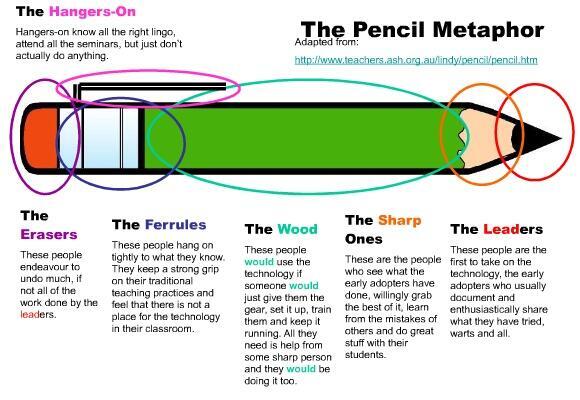- You cannot win over every pupil. As much as I try to be a professional, yet not a dictator, there are always a few pupils who will not warm to my teaching, no matter what I do. Perhaps this is a curse of joining a class and disrupting the teaching mid-term? Maybe my teaching style hasn't been strict enough? Or maybe some kids just plain and simply don't like me?
In my previous job, and throughout my life in general, I've promoted friendliness and a sense of mutual respect. That's not to say I don't do this at school, as I see these as a big part of a pupils' learning with regards to social, moral, spiritual and cultural development. The biggest difference is that a lot of the people I now work with are teenagers, complete with all kinds of life-baggage and mood swings. Having never really dealt with this before, it has caused me to rethink a lot of my behaviours. In other words, it will be the case that I will have people who won't like me. My challenge is to find a way to maintain the mutual respect between myself and those who aren't too keen on me without it leading to a breakdown in behaviour.
It's a weird thing, having someone against you rather than with you. But it must be learned that it's impossible to be all things to all people.
- You are going to receive feedback that you will not like. This comes specifically from a particular review I received of one of my most difficult classes. Of course, I am thankful for the feedback; I enjoy being observed because I can obtain the opinions of those who are more experienced than I, and it's like having an extra pair of eyes in the room who can see what I frequently miss.
However, it always comes as a bit of a blow when you see a sheet of paper riddled with notes that seem to identify all the "bad bits" of a lesson, using direct language, pinning you as the one who couldn't control the class or you who didn't showcase progress explicitly enough. As much as you want to defend your corner*, you can't help but think that the observations are in fact a true reflection of how well (or poorly!) your lesson progressed.
Similar to the first item discussed above, it's not easy to take these criticisms even if you know that it wasn't a spectacular lesson. Again, the challenge is viewing these not as weaknesses, but as areas to develop.
For some people, these would be seen as defeats. I won't lie; when I first realised that I wasn't viewed positively by some of my students and when I read a selection of my feedback, my immediate reaction was that I had failed. But then discussions occurred with teachers, mentors and friends, and it made me realise that it is not a failure; it is an opportunity. As long as I can develop from these, then I shall continue on my journey towards being a great, if not outstanding teacher (I hope!)
* If there happen to be any people reading who observe student teachers, I just have one request: please remember that we have only been teaching, in some instances, for a matter of weeks, if not days. Constructive feedback is always appreciated, but remember that we need time to develop, so please cut us some slack if we can't do everything first time =]
